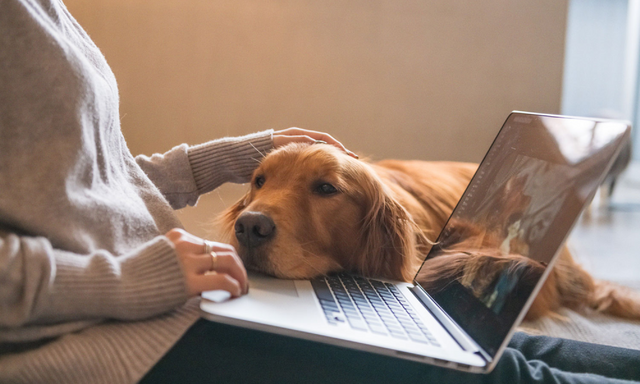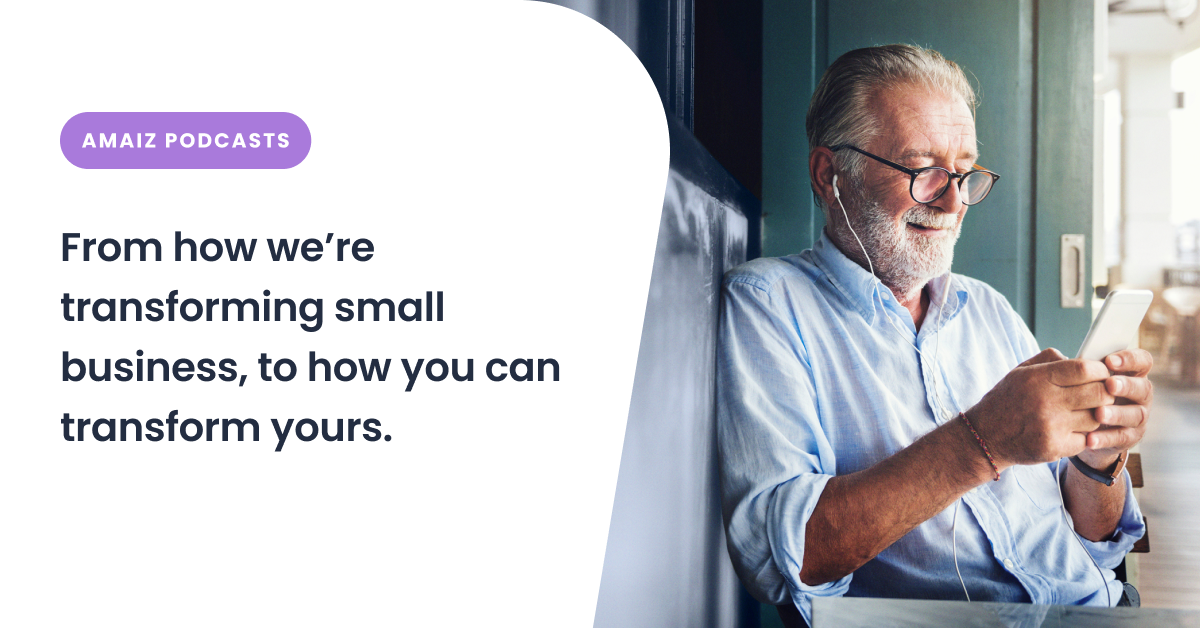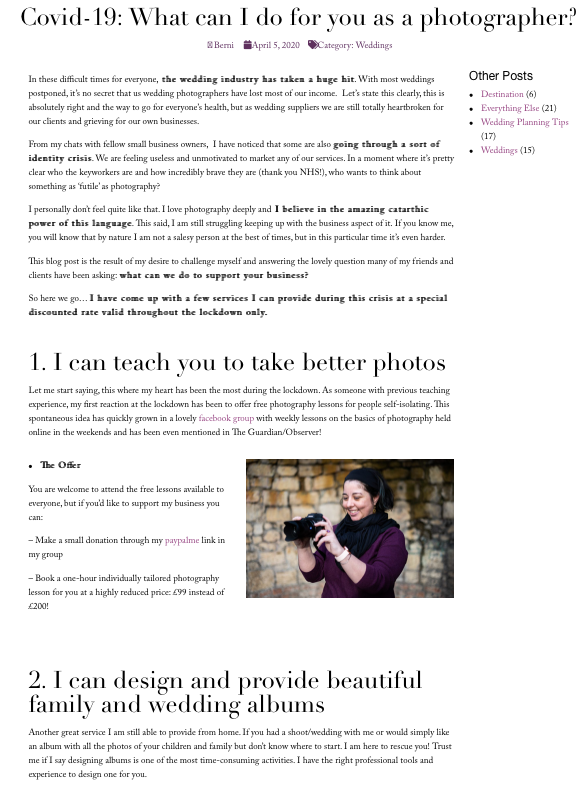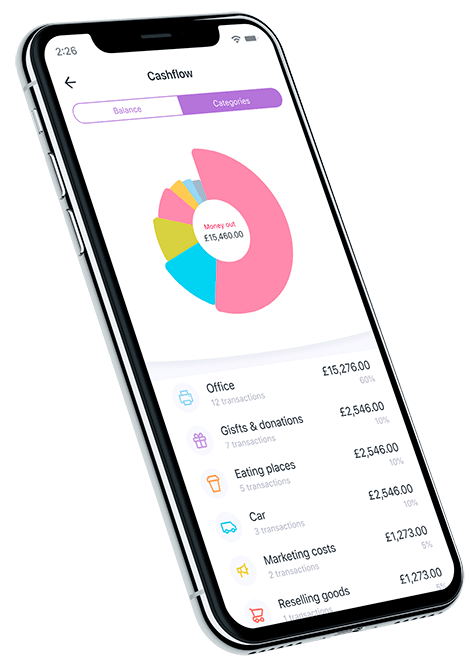How self-employed freelancers are managing the ‘new normal’

Forget companies that are too big to fail, small businesses are too important to fail. We look at the different approaches companies have taken to adapt and survive during lockdown.
According to IPSE there are, officially, around five million self-employed workers in the UK, accounting for one in seven of the workforce. Two million, we’re told, are freelancers. And yet, these numbers don't really give us the full picture.
A 2016 study by the McKinsey Global Institute looked at all forms of independent work (including side-income streams) and concluded the real figure for self-employment (of some sort) was probably closer to 14 million. That’s one in four.
Surprisingly, recent recessions and crises don’t appear to have blunted this upward trajectory either. A 2018 report by IPSE looked at the ten years following 2008 and found the number of highly skilled freelancers starting new businesses had risen by 47%.They also confirmed the 14 million figure.
Last month, a survey run by The Pitch – a national competition to give start-ups a platform to win new business – found that 1 in 10 respondents were planning to start a new business as a result of Covid-19. 21% said this was because they were finally able to give the idea some proper thought; 20% were keen to give back to society; while half felt they could make more money by starting something on their own.
It seems, in a crisis, we’re prepared to get creative. But it’s also true that we’ve been diversifying for some time. Side-hustles, job shares, split incomes and gig working are dyed into the fabric of UK employment; and point to a probable future as well as a new normal. It also makes perfect sense, of course, to limit your exposure to risk during an economic downturn by having a few plates spinning at once.
To pivot or not to pivot?
Talking to small business owners
“Listening to your customers - they’ll show you where the demand is."
That is the question many self-employed business-owners will be asking themselves. Should I stick, or twist? And by how much? To a degree, it depends on what you do. Undeniably, the number of jobs sole traders can accept, or run concurrently is reduced by social distancing, but initial demand should be very high as we exit lockdown. For contractors used to working commercially, in events management or generally with large groups, the future course needs more careful plotting.
“We’re seeing businesses adapt in interesting ways. From catering companies going door to door, fitness instructors taking classes online, childminders keeping kids entertained with an hour or two of FaceTime – even hairdressers are offering DIY tutorials on Zoom", says Jake, host of The Amaiz Podcast. "A friend of mine who had lots of different jobs over the years has been doing well with one-to-one bike repairs over Skype. With hair maintenance thrown in as an extra - discounted if you take both!
If we're learning anything, it's probably the importance of staying positive, learning to be flexible and listening to your customers. They’ll show you where the demand is."
Listen to our latest interviews with small business owners.

Making the most of your multiple ‘selves’
The digital economy specialist
“Let's find out what our personal strengths and weaknesses are”
Rather than pivoting to something drastically new, Michael Schrage, Research Fellow with MIT and an expert on the digital economy, believes small businesses should be diversifying within the space they currently enjoy. By engaging in ‘productive introspection’ and embracing technology, he suggests we boost our self-awareness and can better identify how to navigate the path ahead.
“The question we should ask is how do we make ourselves more valuable, not just more productive. We are being forced to rethink what's possible, often within very new, very narrow parameters. So, let’s deconstruct that. Let's find out what our personal strengths and weaknesses are and map these to our digital worlds in order to achieve success."
He suggests the idea of a single, integrated self is “B.S.” "Your mind is a competing committee of possibilities; a taskforce. Rather than thinking in terms of self-discipline we should be looking at ‘selves discipline’. Instead of asking “How do I become my best possible self", consider how you might better manage a portfolio of ‘selves.’"
These might include your influencer self, financial self, listening self or even timekeeping self. For each 'self', he says, you need to decide if you're using technology as an amplifier or a crutch. Then make adjustments to augment your strengths and mitigate your weaknesses.
Freedom in flexibility
The freelance wedding photographer
“Make thoughtful decisions - diversify in the short-term”
Berni Palumbo, a freelance wedding photographer, suggests starting conversations with customers that aren't just about making money. She looked at how her industry was responding, and asked, “What can I do for you?”

“The hardest thing has been missing pretty much the whole 2020 wedding season", she says.
"When the lockdown started, we were just getting ready and excited to begin the busiest part of the year. In a moment, it was all gone. Emotionally, it has been hard to deal with. I would normally do around 15 weddings a year. So this is not great timing!
“Some of my friends in the industry have been selling discounted FaceTime art and photography. But I don't want to run too far from my core service, while also wanting to help people in some way. I'm now offering group photography lessons for free plus one-to-one sessions for a fee (or not - the option to donate is very customer friendly) and have put more time into my Facebook group for couples at the planning stage. This way I’m able to offer little bits of advice while maintaining and developing relationships. As a result, my diary is full up for all next year's peak dates."
She advises freelancers suffering an identity crisis to make thoughtful decisions, however.
"People ask whether I'd take on help to meet increased demand next year and claw back losses, but I've invested too much of myself into the brand to risk outsourcing. From early in my career I was very influenced by the modern Russian masters like Vrubel (he was into everything visual from graphics to theatrical art) and I feel my work has a particular identity and style that I want to protect.
“But I am not just going to just sit it out either! I’ve started a new branding photography site for local businesses www.shineyourway.co.uk to help me diversify in the short term. Then, fingers crossed, I can get back to my main passion."
Read our Five Steps to fine-tuning your Freelance Business.
Speak to us
We’ve been talking to small business owners throughout lockdown, and we’ll keep going. Your ideas and experiences help us build banking services that can respond to change. We want to hear your pain points and your successes, and how we can help you adapt - tell us your story.
For more advice on managing your money during Covid-19 visit our hub.

Download now!
And you can open a business account with all the support you need in minutes.



